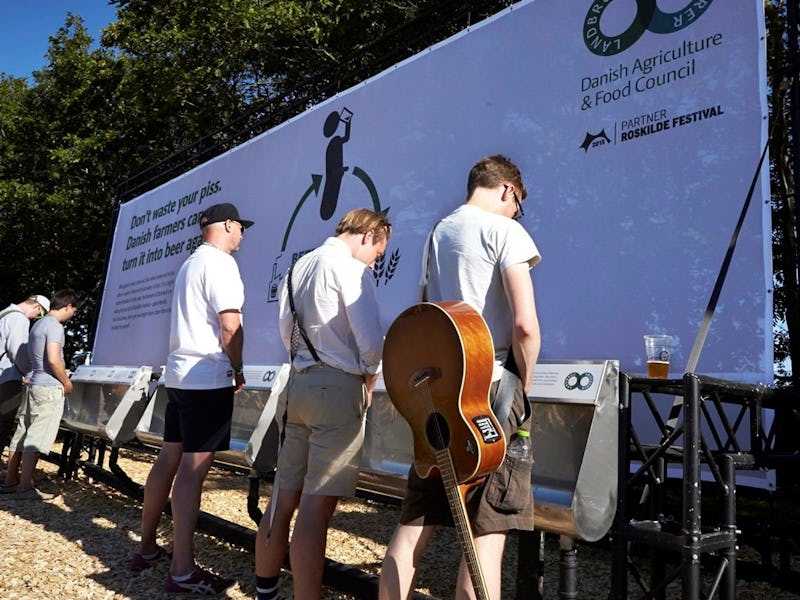Each summer, some 130,000 music lovers descend on an 80-acre swath of land south of the Danish town of Roskilde for the annual Roskilde Festival. Where there is music there will inevitably be drinking, and where there is drinking there will be pee. Lots of it. At last year’s festival, rather than let all of that precious urine go to waste, a Danish brewery recycled 50,000 liters it of to brew a new type of beer.
“Beercycling,” as Denmark’s Agriculture and Food Council has dubbed the process, is something we’d all better get used to.
The urine itself didn’t directly end up in the beer, but it was used to fertilize the fields of barley that the brewers from Norrebro Bryghus drew upon during the malting phase of beer brewing. At that stage, barley gets roasted and broken down, and then it’s mashed with water and eventually releases all the sugars that added yeast turns into alcohol. The resulting beer is named “Pisner,” a portmanteau of the Danish slang term for piss, pis, and Pilsner, a delicious style of pale lager. Denmark’s Agriculture and Food Council has described the product as part of their heritage of “circular economy.”
“Just as we have seen shops sell goods that would otherwise have been thrown out, beercycling allows us to recycle a product that is normally flushed down the drain,” a statement from the council read.
Like Pilsner, only without the L.
When asked about the taste of the beer, a Roskilde guest and Pilsner drinker named Anders Sjögren told Reuters: “If it had tasted even a bit like urine, I would put it down, but you don’t even notice.” There’s no reason why you would: Animal waste is used as agricultural fertilizer all the time, and our brews rarely taste of horse droppings. What makes urine a valuable fertilizer is the fact that it contains the elements nitrogen, phosphorus, and potassium, which are essential nutrients for plant growth, according to Modern Farmer. These elements are usually harvested from the earth or the air and used to produce synthetic fertilizers when organic fertilizer is not used. Of course, there are two major roadblocks to regularly using human urine on a large scale: Obviously, it must be processed for safety (there’s no word on what effect music festival drugs in the urine will have), and, perhaps more pertinently, it doesn’t exactly score high marks in the public relations department.
Nevertheless, beercycling and relatedly unsavory processes will likely become more common as brewers look to mitigate the constraints on natural resources that climate change might bring. Unlike Pisner beer, which doesn’t use urine directly, a craft beer brewed by Maverick’s Brewing in 2016 actually used greywater — recycled water sourced from sewers — in its recipe, in order to make a statement about water conservation. That beer, like Pisner, also passed several qualitative taste tests but is currently not legal to sell in California, where laws prohibit the sale of products containing “recycled water.”
As our frozen freshwater stores become one with the saline sea, however, we’ll eventually have to change the way we look at sewage and the goods that flow from it. VinePair’s Nick Hines, a writer who specializes in the future of alcohol, tells Inverse that he “believes all beer will be made with pee by the year 2060.”
Not convinced? Since Norrebro Bryghus plans to make 60,000 bottles of Pisner from the Roskilde spoils, there’ll be plenty of opportunities to change your mind.
